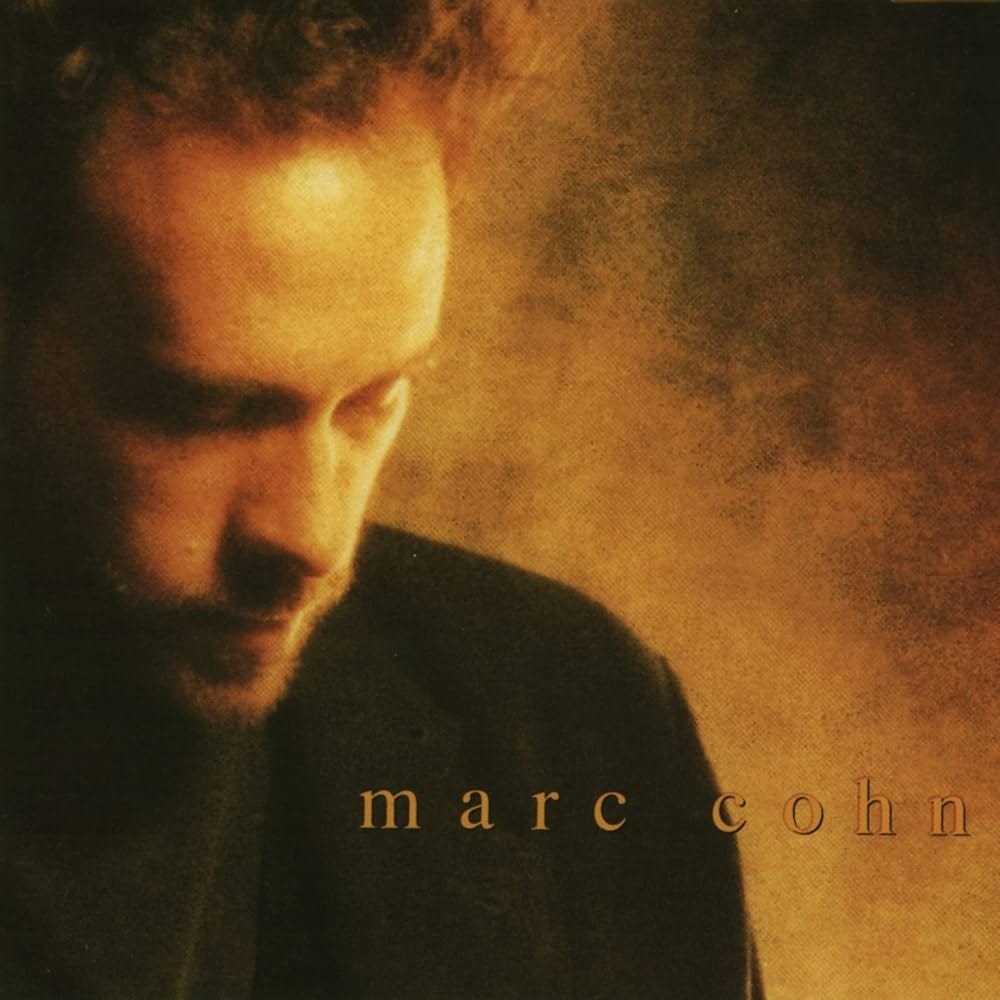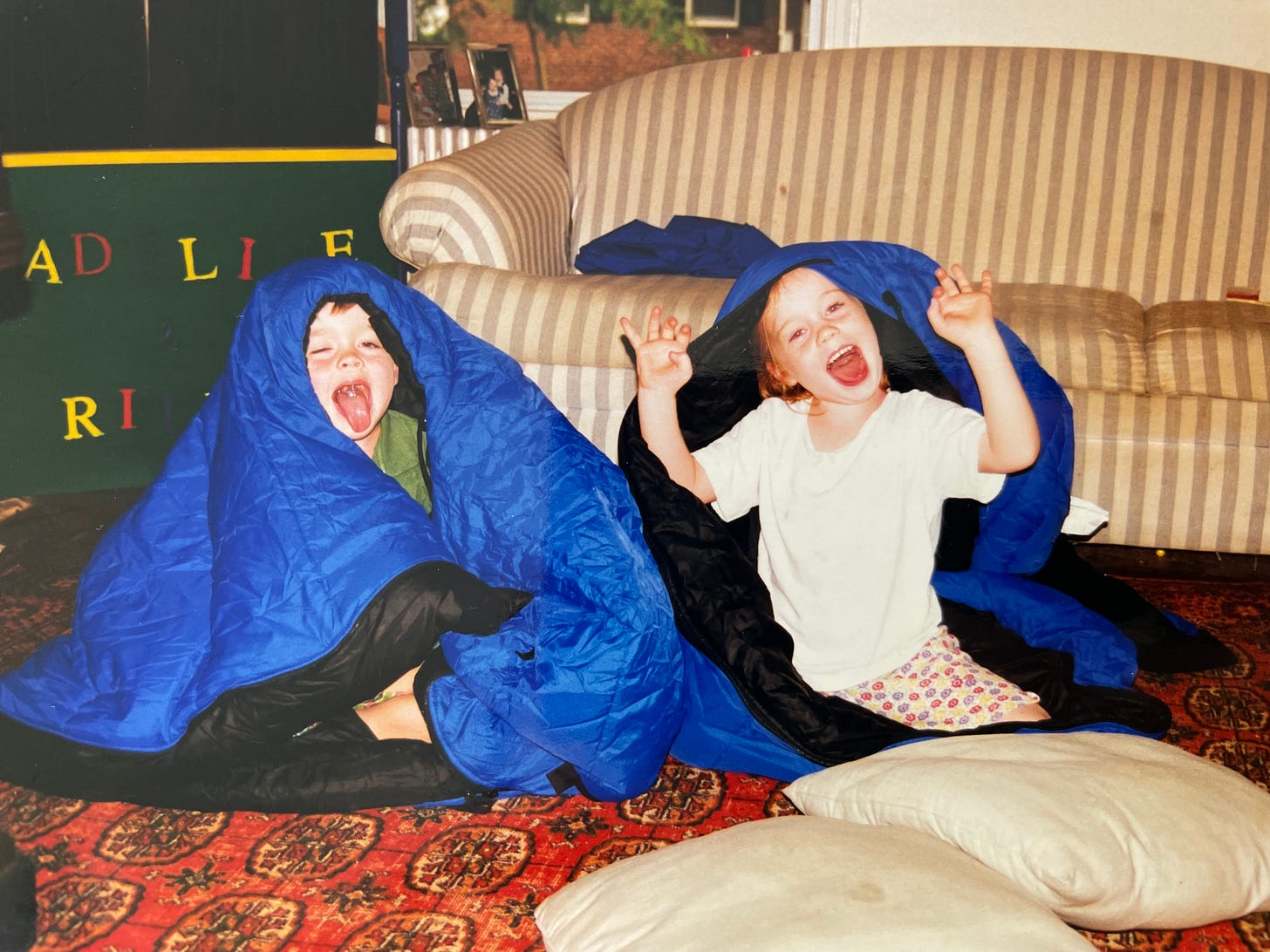No. 099 - Marc Cohn’s “Walking in Memphis” changed my life
The dad-approved, volume-up tune that transports Madeline Craig
Before today’s essay, a quick reminder ✨
To celebrate TSCML’s two-year anniversary and support its continuation, I’m giving away a $50 digital gift card to Darkside Records! All you have to do is become a paid subscriber and you’ll be automatically entered to win.
Bonus: all paid subscribers get instant access to 50+ secret posts, playlists, and album recommendations
If this project is meaningful to you, please support its future by becoming a paid subscriber today ❤️
This Song Changed My Life is an independent music publication featuring weekly essays from people all around the world about the songs that mean the most to them. Created (and illustrated) by Grace Lilly.
• 5 min read •
But do I really feel the way I feel?
I don’t remember the first time I heard “Walking in Memphis.” It was just a presence in our lives, the way certain music was for everyone growing up during the CD era. While my brother Riley and I had maybe a couple Britney Spears or NOW That’s What I Call Music! CDs in the family collection, the vast majority was my parents’ music. Specifically, my dad’s. Sometimes, after school when we had too much energy, and before we were big enough to have too much homework, we would move the furniture out of the way and dance spastically all over the living room floor, Riley and I, gasping with laughter as we attempted to literally “get knocked down but get up again” in time with the rapid lyrics to Chumbawamba’s “Tubthumping.”
There was always background music, at parties or on long road trips, but every now and then, a song would come on that made my dad drop everything, turn the volume way up, and belt the lyrics. He would make a dramatic “Oooh!” at the sound of the first notes, in a way that made you know the song was special, important. “Here we go!” If we were in the car, he would reach around from the front seat and squeeze or shake one of our knees or ankles, whatever he got first.
“Walking in Memphis” is always a volume-up kinda song. My siblings and I sang along with our whole bodies long before we knew most of the lyrics, making them up in places, and just singing syllables in others. It didn’t matter. The way the song rises, wanders, drops, the way my dad’s face always looked when he leaned into the corners of it, reaching for the high notes, digging into the low ones, shouting “Ma’am I a-aa-ammm tonight!” and laughing after Muriel asks if the singer is a Christian child. I didn’t even know what the song was about until recently, and yet the feeling of it taught me about what it is to be alive: that future echo of a deep grief mixed with bursting joy, a lostness, humour, and a transcendence, none of which I had real touchstones for at the time.
It wasn’t until last year, when the song came on unexpectedly — the first time I’d heard it in over a decade — that I really heard the lyrics. “Walking in Memphis” is a highly accurate autobiographical account of the trip Marc Cohn took to Memphis in 1985, when he was feeling deeply stuck and a little defeated and was about the age that I am now. My dad almost certainly told us that it was a true story, and I think I even remember him explaining what Graceland was, but I don’t know that we fully believed him. We had a habit of doubting the things he told us, like the time he tried to convince 10-year-old me that gooseberries are a real thing, and I absolutely wouldn’t have it.
Now it’s January, 2024. I’m standing alone in a very white London flat that’s not mine, in the dead of winter, the thin sunlight already having trickled away in the early afternoon, and the song comes on. Hearing the intro to “Walking in Memphis,” those first few notes like the footsteps off a plane into a new place, launches me instantly back to the fabric backseat of our old car, to the living room of a house we moved out of a long time ago, to a time before a lot of family pain. And then, the verses carry me faithfully through the haunts of Memphis, a place I’ve never actually been.
Marc Cohn described his trip as “a spiritual awakening, the kind of trip where you’re different when you leave,” and you can feel that in the journey of the music. It’s completely grounded in a place populated by real people, but there are also ghosts that walk the streets with you. As I listen, there’s a piece of me that feels like it’s me that Reverend Al Green is glad to see, and that it’s me that he’s reminding when he whispers, “Boy, you got a prayer in Memphis” (Memphis, the physical city, not really being the point — at least for me).
This song is a piece of the forgotten fabric that’s made up not just who I am, but who a lot of other people are too. It’s a perfect subjective snapshot of time, place, and mood. It’s both communal and personal. It captures something hyper-specific that anyone can transpose onto their own experiences. In short, it does the magic thing that any good story does, and reminds us that we’re not alone. It makes me smile. Throughout the song, Marc repeats, “But do I really feel the way I feel?” And girl, same. I just want to sing it again and again. I will never be in Memphis in 1985, but I’ve floated down those streets a thousand times, and I’ve sung with all my might.
Later that night, I text my dad to tell him that “Walking in Memphis” came on and it made me think of him, but I don’t think he really gets what I’m trying to say. ◆
About Madeline
Madeline Craig is an environmentalist and visual artist (painter, potter, and photographer) who recently relocated from Mexico City to London. She has published several papers and a book chapter about sustainable aquaculture and worked all over Central America and the Caribbean.
Instagram @maybe__its_madeline
This Song Changed My Life is open to submissions. For consideration, please fill out this simple form.
Categories
Friendship • Family • Coming of Age • Romance • Grief • Spirituality & Religion • Personal Development
Recommended
Top 10 • Grace's Favorites • Secret
Explore
In 1991, a teen lifeguard made a cassette tape that nudged Millie De Chirico toward a career in foreign and underground film — No. 098 - Pixies’s “Debaser” changed my life
Decades after Charlie Johnson’s family moved to America, he uncovers the challenges his parents tried to keep to themselves — No. 097 - Judy Collins’s “Both Sides Now” changed my life












